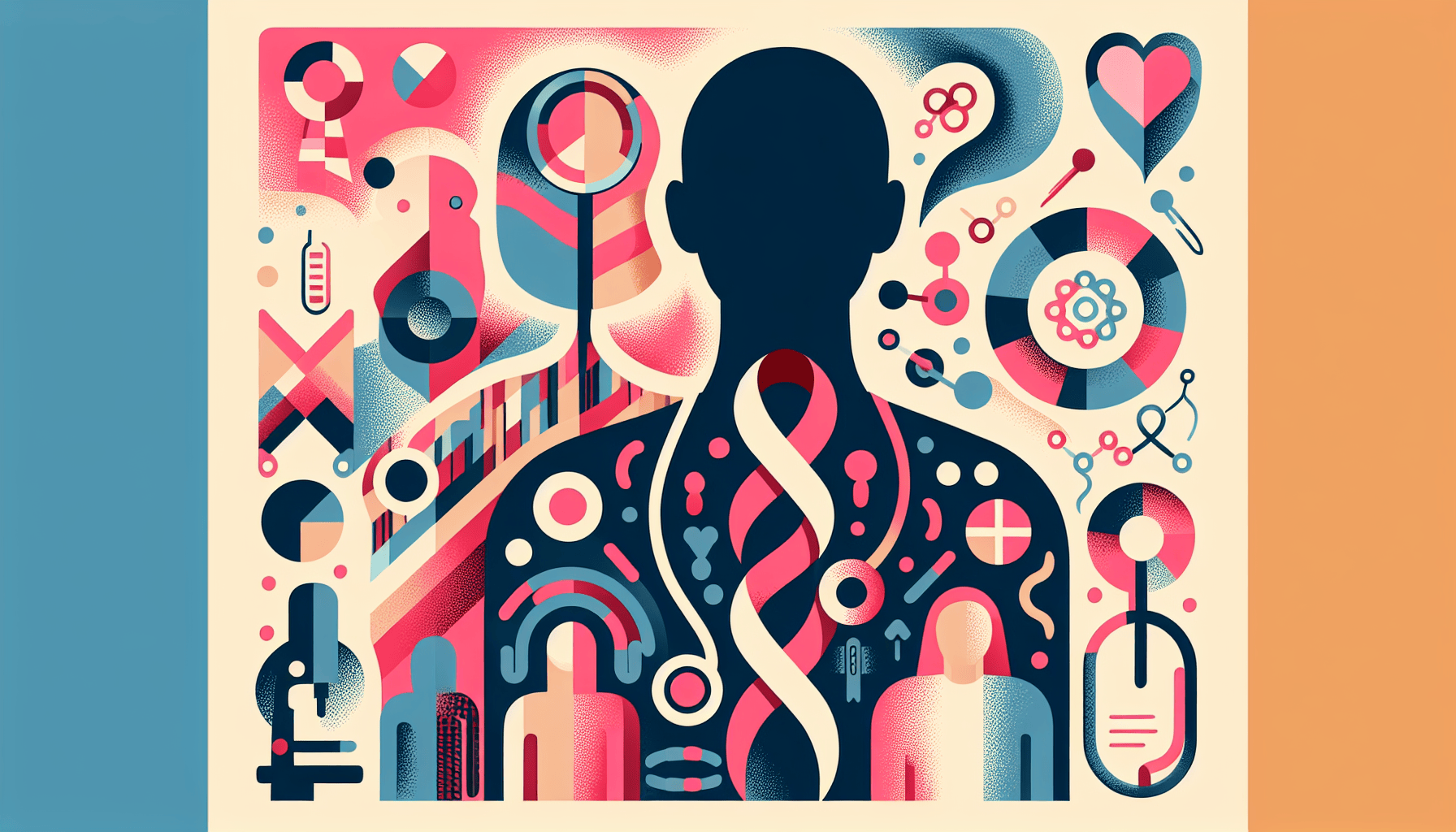About 15% of women with breast cancer have a family history of the disease. Having a close relative, such as a mother, sister, or daughter, with breast cancer doubles your risk. In this article, we'll explore the role of genes in hereditary breast cancer, the risks associated with specific gene mutations, and the options available for genetic testing and risk reduction.
Breast Cancer Genes: BRCA1 and BRCA2
Mutations in two genes, BRCA1 and BRCA2, are the most common causes of hereditary breast cancer, accounting for about 20% to 25% of cases. These genes normally help prevent cancer by repairing DNA damage and regulating tumor growth. If you inherit a mutated BRCA1 or BRCA2 gene from either parent, you have a higher risk of developing breast cancer.
Risks Associated with BRCA Mutations
Women with a mutated BRCA1 gene have a 55% to 65% risk of breast cancer by age 70.
Women with a mutated BRCA2 gene have about a 45% risk.
Men with a BRCA mutation are also at a higher risk of breast cancer.
BRCA mutations increase the risk of developing breast cancer at a younger age (before menopause).
People with a mutated BRCA1 or BRCA2 gene have a higher risk of developing a second primary breast cancer and bilateral breast cancer (cancer in both breasts).
These mutations also raise the risk of ovarian, fallopian tube, peritoneal, and pancreatic cancers, as well as prostate cancer in men.
Genetic Testing for Breast Cancer
At-risk families can take blood tests to look for mutations in BRCA1 and BRCA2 genes. Consider discussing genetic testing with your doctor if you have a strong family history of breast or ovarian cancer, have been diagnosed with breast cancer at a young age, or are of Ashkenazi Jewish descent.
Before Genetic Testing
Counseling is required before undergoing genetic testing for breast cancer. During this educational session, a healthcare provider will explain the benefits and risks of genetic testing and answer any questions you may have. You'll also have to sign a consent form, indicating that you understand the implications of the test results for you and your family.
Interpreting Genetic Test Results
A negative genetic test means that a known breast cancer gene mutation was not identified. If a BRCA1 or BRCA2 mutation has been previously found in your family, a negative test result indicates that you do not have that specific mutation. However, if no known mutation has been identified in your family, a negative result should be interpreted cautiously, as there may be other gene changes that cannot be detected by current tests.
A positive test result means that a mutation known to increase the risk of breast and ovarian cancer was identified.
Options for Managing Hereditary Breast Cancer Risk
If you have a genetic predisposition to breast cancer, there are several options to manage your risk:
Start regular breast cancer screening at age 25 or 10 years earlier than the age of the youngest relative with breast cancer at the time of their diagnosis.
Perform regular breast self-exams and report any changes to your doctor immediately.
Discuss blood tests, pelvic exams, and transvaginal ultrasounds with your doctor to screen for ovarian cancer.
Consider preventive (prophylactic) mastectomy or removal of ovaries and fallopian tubes to significantly lower your risk.
Use anti-estrogen drugs like Tamoxifen, Raloxifene (Evista), or Exemestane (Aromasin) to reduce your risk, depending on your menopausal status.
Potential Concerns and Benefits of Genetic Testing
Genetic testing is not 100% accurate and can be costly, with prices ranging from $400 to more than $3,000. Insurance coverage varies, and it may take several weeks to receive results. Genetic testing is also controversial, but legislation like the Health Insurance Portability and Accountability Act (HIPAA) of 1996 and various state laws protect individuals from employment or insurance discrimination based on genetic information.
The benefits of genetic testing include the ability to make informed medical and lifestyle decisions, ease anxiety, and participate in medical research that may ultimately lower the risk of death from breast cancer.
If you are considering genetic testing for hereditary breast cancer, it is essential to consult with a genetic counselor or a healthcare provider experienced in cancer genetics. They can help you understand the implications of the test results and guide you in making informed decisions about your health.
For more information on hereditary breast cancer and genetic testing, visit:


